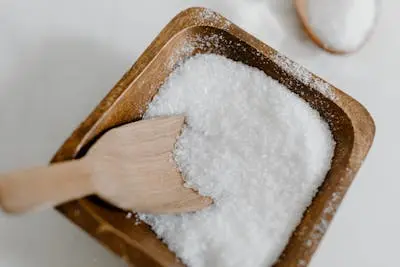Salt toxicity in pets

While a small amount of salt is typically safe for pets, excessive consumption can lead to salt poisoning or hypernatremia, which is a dangerous condition. Common symptoms are vomiting, diarrhea, lethargy, polidypsia and polyuria, tremors and seizures. Pets are more likely to experience salt toxicity if they consume high-sodium foods, salt-based ice melts, or even homemade playdough, which can contain significant amounts of salt.
all
- Safe 0-2 g/kg
- Moderate toxicity 2-4 g/kg
- Life-threatening 4< g/kg